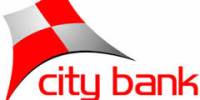General banking
Introduction
General banking department is the heart of all banking activities. This is the busiest and important department of a branch, because funds are mobilized, cash transactions are made; clearing, remittance and accounting activities are done here.
Activities OF GENERAL Banking Department
Since bank is confined to provide the services everyday, general banking is also known as ‘retail banking’. In EXIM Bank LTD Principal Branch, the following departments are under general banking section:
Account opening section
Deposit section
Cash section
Remittance section
Clearing section
Accounts section
Account Opening Section:
Account opening is the gateway for clients to enter into business with bank. It is the foundation of banker customer relationship. This is one of the most important sections of a branch, because by opening accounts bank mobilizes funds for investment. Various rules and regulations are maintained and various documents are taken while opening an account. A customer can open different types of accounts through this department. Such as:
1. Al –Wadia (Current) account.
2. Mudaraba Savings (SB) account.
3. Mudaraba Short Term Deposit (MSTD)
# Types of Accounts with Terms and Conditions
Al- Wadia (Current) Account:
Current account is purely a demand deposit account. There is no restriction on withdrawing money from the account. It is basically justified when funds are to be collected and money is to be paid at frequent interval.
Some Important Points are as follows-
1. Minimum opening deposit of TK.1000/- is required;
2. There is no withdrawal limit.
3. No interest is given upon the deposited money;
4. Minimum Tk.1000/= balance must always maintain all the time.
Mudaraba Savings (SB) Account:
This deposit is primarily for small-scale savers. Hence, there is a restriction on withdrawals in a month. Heavy withdrawals are permitted only against prior notice. Some Important Points are as follows-
1. Minimum opening deposit of Tk.5000/= is required;
2. Minimum Tk.1000/= balance must always maintain all the time;
3. Withdrawal amount should not be more than 1/4th of the total balance at a time and limit twice in a month.
4. If withdrawal amount exceed 1/4th of the total balance at a time no interest is given upon the deposited money for that month.
Mudaraba Short Term Deposit (MSTD) Account:
Normally various big companies, organizations, Government Departments keep money in MSTD account. Frequent withdrawal is discouraged and requires prior notice. The deposit should be kept for at least seven days to get interest. The interest offered for MSTD is less than that of savings deposit. Interest is calculated based on daily minimum product and paid two times in a year. Interest rate is 4.50%.
# Account Opening procedure:
| Step 1 | The account should be properly introduced by Any one of the following: An existing Current Account holder of the Bank. Officials of the Bank not below the rank of an Assistant officer. A respectable person of the locality well known to the Manager/Sub-Manager of the Branch concerned. |
| Step 2 | Receiving filled up application in bank’s prescribed form mentioning what type of account is desired to be opened |
| Step 3 | The form is filled up by the applicant himself / herself Two copies of passport size photographs from individual are taken, in case of firms photographs of all partners are taken Applicants must submit required documents Application must sign specimen signature sheet and give mandate Introducer’s signature and accounts number – verified by legal officer |
| Step 4 | Authorized Officer accepts the application |
| Step 5 | Minimum balance is deposited – only cash is accepted |
| Step 6 | Account is opened and a Check book and pay-in-slip book is given |
Documents required for opening account
Individual / Joint Account:
Introduction of the account.
Two photographs of the signatories duly attested by the introducer.
Identity (copy of passport).
Joint Declaration Form (For joint a/c only).
Employee’s Certificate (in case of service holder).
Partnership account:
Introduction of the account.
Two photographs of the signatories duly attested by the introducer.
Partnership letter duly signed by all partners (Sign should be similar as stated in Partnership Deed).
Partnership Deed duly certified by Notary public.
Registration (If any).
Updated Trade license.
Proprietorship account:
Introduction of the account.
Two photographs of the signatories duly attested by the introducer.
Valid copy of Trade License.
Rubber stamp.
TIN number certificate.
Identity (Copy of passport).
Permission letter from DC/ Magistrate (in case of newspaper)
Limited company:
Introduction of the account.
Two photographs of the signatories duly attested by the Introducer.
Valid copy of Trade License.
Board resolution of opening A/C duly certified by the Chairman/Managing Director.
Certificate of Incorporation.
Certificate of Commencement (In case of Public limited company).
Certified (joint stock) true copy of the Memorandum and Article of Association of the Company duly attested by Chairman or Managing Director.
List of directors along with designation & specimen signature.
Latest certified copy of Form – xii (to be certified by register of joint stock companies) (In case of Directorship change).
Rubber Stamp (Seal with designation of each person)
Certificate of registration (In case of Insurance Company – Obtained from department of Insurance from the Peoples Republic of BD).
Club / societies account:
Introduction of the account.
Two photographs of the Signatories duly attested by the introducer.
Board Resolution for Opening A/C duly certified by President/ Secretary.
List of Existing Managing Committee.
Registration (if any).
Rubber Stamp.
Permission letter from Bureau of N.G.O.(In case of N.G.O. A/C).
2. Deposit Section:
Deposit is the lifeblood of a bank. From the history and origin of the banking system
We know that deposit collection is the main function of a bank.
1. Accepting deposits:
The deposits that are accepted by EXIM Bank like other banks may be classified in to,
a) Demand Deposits
b) Time Deposits
Demand deposits:
These deposits are withdrawn able without notice, e.g. current deposits. EXIM Bank accepts demand deposits through the opening of,-
a) Current account
b) Savings account
c) Call deposits from the fellow bankers
Time deposits:
A deposit which is payable at a fixed date or after a period of notice is a time deposit. EXIM Bank accepts time deposits through Fixed Deposit Receipt (FDR), Short Term Deposit (STD) and Bearer Certificate Deposit (BCD) etc.
While accepting these deposits, a contract is done between the bank and the customer. When the Bankers open an account in the name of customer that is arise, a contract between the account holder and the bankers. This contract will be valid one only when both the parties are competent to enter into contracts. As account opening initiates the fundamental relationship & since the banker has to deal with different kinds of persons with different legal status, EXIM Bank officials remain very much careful about the competency of the customers.
3. Cash Section:
Banks, as a financial institution, accept surplus money from the people as deposit and give them opportunity to withdraw the same by check, etc. But among the banking activities, cash department play an important role. It does the main function of a commercial bank i.e. receiving the deposit and paying the cash on demand. As this department deals directly with the customers, the reputation of the bank depends much on it. The functions of a cash department are described bellow:
# Functions of Cash Department:
| Cash Payment | Cash payment is made only against check This is the unique function of the banking system which is known as “payment on demand” It makes payment only against its printed valid Check |
| Cash Receipt | It receives deposits from the depositors in form of cash So it is the “mobilization unit” of the banking system It collects money only its receipts forms |
Cash packing:
After the banking hour cash is packed according to the denomination. Notes are counted and packed in bundles and stamped with initial.
Allocation of currency:
Before starting the banking hour all tellers give requisition of money through “Teller cash proof sheet”. The head teller writes the number of the packet denomination wise in “Reserve sheet” at the end of the day; all the notes remained are recorded in the sheet.
4. Local Remittance:
Carrying cash money is troublesome and risky. That’s why money can be transferred from one place to another through banking channel. This is called remittance. Remittances of funds are one of the most important aspects of the Commercial Banks in rendering services to its customers.
# Types of remittance:
Between banks and non banks customer
Between banks in the same country
Between banks in the different centers.
Between banks and central bank in the same country
Between central bank of different customers.
The main instruments used by the EXIM Bank of remittance of funds are
Payment order (PO)
Demand Draft (DD)
Telegraphic Transfer (TT)
So the basic three types of local remittances are discussed below
| Points | Pay Order | Demand Draft | TT |
| Explanation | Pay Order gives the payee the right to claim payment from the issuing bank | Demand Draft is an order of issuing bank on another branch of the same bank to pay specified sum of money to payee on demand. | Issuing branch requests another branch to pay specified money to the specific payee on demand by Telegraph /Telephone |
| Payment from | Payment from issuing branch only | Payment from ordered branch | Payment from ordered branch |
| Generally used to Remit fund | Within the clearinghouse area of issuing branch. | Outside the clearinghouse area of issuing branch. Payee can also be the purchaser. | Anywhere in the country |
| Payment Process of the paying bank | Payment is made through clearing | 1. Confirm that the DD is not forged one. 2.Confirm with sent advice 3.Check the ‘Test Code’ 4.Make payment | 1.Confirm issuing branch 2.Confirm Payee A/C 3.Confirm amount 4.Make payment 5.Receive advice |
| Charge | Only commission | Commission + telex charge | Commission + Telephone |
Fixed Deposit:
The Local Remittance section of EXIM Bank Panthopath Branch also issues FDR.
They are also known as time deposit or time liabilities. These are deposits, which are made with the bank for a fixed period, specified in advance. The bank need not maintain cash reserves against these deposits and therefore, the bank offers higher of interest on such deposits.
Opening of fixed Deposit Account: The depositor has to fill an account form where in the mentions the amount of deposit, the period for which deposit is to be made and name/names is which the fixed deposit receipt is to be issued. In case of a Joint name EXIM Bank also takes the instructions regarding payment of money on maturity of the deposit. The banker also takes specimen signatures of the depositors. A fixed deposit account is then issued to the depositor acknowledging receipt of the sum of money mentioned there. It also contains the rate of interest and the date on which the deposit will fall due for payment.
Term Deposits: These rates are not negotiable. In this table we can find out the percentage that is given by the bank for specific period of time to the customer.
Fixed deposit: 3 (three) months.
| SL no. | Range of amount | Rate of Interest |
| 01 | TK 10000.00-Above | 13.25% |
Fixed deposit: 6(six) months.
| SL no. | Range of amount | Rate of Interest |
| 01 | TK 10000.00-Above | 13.50% |
Fixed deposit: 12 (twelve) months
| SL no. | Range of amount | Rate of Interest |
| 01 | TK 10000.00-Above | 13% |
Payment of interest: It is usually paid on maturity of the fixed deposit. EXIM Bank calculates interest at each maturity date and provision is made on that “miscellaneous creditor expenditure payable accounts” is debited for the accrued interest.
Encashment of FDR: In case of premature FDR< EXIM Bank is not bound to accept surrender of the deposit before its maturity date. In order to deter such a tendency the interest on such a fixed deposit is made cut a certain percentage less the agreed rate. Normally savings bank deposit is allowed.
Loss of FDR: In case of lost of FDR the customer is asked to record a GD (general diary) in the nearest police station. After that the customer has to furnish an Indemnity Bond to EXIM Bank a duplicate FDR is then issued to the customer by the bank.
Renewal of FDR: In EXIM Bank, the instrument is automatically renewed within seven days after the date of its maturity if the customer does not come to encase the FDR. The period for renewal is determined as the previous one.
5. Clearing Section:
Check, Pay Order (P.O), Demand Draft (D.D.) Collection of amount of other banks on behalf of its customer is a basic function of a Clearing Department.
Clearing:
Clearing is a system by which a bank can collect customers fund from one bank to another through clearing house.
Clearing House:
Clearing House is a place where the representatives of different banks get together to receive and deliver check with another banks.
Normally, Bangladesh Bank performs the Clearing House in Dhaka, Chittagong, Khulna and Bogra. Where there is no branch of Bangladesh Bank, Sonali bank arranges this function.
Member of Clearing House:
EXIM Bank LTD. is a scheduled Bank. According to the Article 37(2) of Bangladesh Bank Order, 1972, the banks, which are the member of the clearinghouse, are called as Scheduled Banks. The scheduled banks clear the check drawn upon one another through the clearinghouse.
Types of Clearing:
Outward Clearing: When the Branches of a Bank receive check from its customers drawn on the other Banks within the local clearing zone for collection through Clearing House, it is Outward Clearing.
Inward Clearing: When the Banks receive check drawn on them from other Banks in the Clearing House, it is Inward Clearing.
Types of clearing house: There are two type of clearing house: Those are
1) Normal clearing house
2) Same day clearing house
Normal clearing house:
1st house: 1st house normally stands at 10 a.m. to 11a.m
2nd house: 2nd house normally stands after 3 p.m. and it is known as return house.
Same day clearing house:
1st house: 1st house normally stands at 11 a.m. to 12 pm.
2) 2nd house: 2nd house normally stands after 2 p.m. and it is known as return house.
Who will deposit check for Clearing: Only the regular customers i.e. who have Savings, Current, STD & Loan Account in the bank can deposit check for collection of fund through clearing house.
Precaution at the time of check receiving for Clearing, Collection of LBC, OBC & Transfer:
1) Name of the account holder same in the check & deposit slip.
2) Amount in The check & deposit slip must be same in words & in figure
3) Date in the check may be on or before (but not more than six months back) clearing house date.
4) Bank & Branch name of the check, its number & date in the Deposit slip.
5) Check must be signed.
6) Signature for confirmation of date, amount in words / in figure Cutting & Mutilation of check.
7) Check should be crossed (not for bearer check).
8) Account number in the deposit slip must be clear.
9) Depositor’s signature in the deposit slip.
Return house:
Return House means 2nd house where the representatives of the Bank meet after 3 p.m. to receive and deliver dishonored check, which placed in the 1st Clearing House.
Check may be dishonored for any one of the following reasons:
Insufficient fund.
Amount in figure and word differs.
Check out of date/ post- dated.
Payment stopped by the drawer.
Payee’s endorsement irregular / illegible / required.
Drawer’s signature differs / required.
Crossed check to be presented through a bank.
Other specific reasons not mentioned above.
The dishonor checks entry in the Return Register & the party is informed about it. Party‘s signature required in the return register to deliver the dishonor check. After duration, the return check is sent to the party’s mailing address with Return Memo.
If the check is dishonored due to insufficiency of funds than EXIM Bank charges TK. 25/=as penalty.
Responsibility of the concerned officer for the Clearing Check:
Crossing of the check.
(Computer) posting of the check.
Clearing seal & proper endorsement of the check.
Separation of check from deposit slip.
Sorting of check 1st bank wise and then on branch wise.
Computer print 1st branch wise & then bank wise.
Preparation of 1st Clearing House computer validation sheet.
Examine computer validation sheet with the deposit slip to justify the computer posting
9) Copy of computer posting in the floppy disk.
Bills Collection:
In modern banking the mechanism has become complex as far as smooth transaction and safety is concerned. Customer does pay and receive bill from their counterpart as a result of transaction. Commercial bank’s duty is to collect bills on behalf of their customer.
Types of Bills for Collection
Outward Bills for Collection (OBC).
Inward Bills for Collection (IBC).
Outward Bills for Collection (OBC)
OBC means Outward Bills for Collection .OBC exists with different branches of different banks outside the local clearinghouse. Normally two types of OBC:
OBC with different branches of other banks
OBC with different branches of the same bank
Procedure of OBC:
Entry in the OBC register.
Put OBC number in the check.
“Crossing seal” on the left of the check & “payees account will be credited on realization “seal on the back of the check with signature of the concerned officer.
Desks patch the OBC check with forwarding.
Reserve the photocopy of the check, carbon copy of the forwarding and deposit slip of the check in the OBC file.
Commission for collection:
| Up to 1lac ———————————————- 0.15% |
| Above 1lac———————————————- 0.10% |
| Above 5lac ———————————————- 0.05% |
Inward bills for collection (IBC)
When the banks collect bills as an agent of the collecting branch, the system is known as IBC. In this case the bank will work as an agent of the collection bank. The branch receives a forwarding letter and the bill.
Procedure of IBC:
IBC against OBC: To receive the OBC check first we have to give entry in the IBC Register .The IBC number should put on the forwarding of the OBC with date.
Deposit of OBC amount: OBC check amount is put into the “sundry deposit-sundry Creditors account”, prepare debit & credit voucher of it. If the OBC check is honored, send credit advice (IBCA) with signature & advice number of the concern branch for the OBC amount.
If the OBC check is dishonored, the concerned branch is informed about it.
Again place in the clearing house or send the OBC check with Return Memo to the issuing branch according to their information.
6. ACCOUNTS SECTION:
Accounts Department is called as the nerve Centre of the bank. In banking business, transactions are done every day and these transactions are to be recorded properly and systematically as the banks deal with the depositors’ money. . Improper recording of transactions will lead to the mismatch in the debit side and in the credit side. To avoid these mishaps, the bank provides a separate department; whose function is to check the mistakes in passing vouchers or wrong entries or fraud or forgery. This department is called as Accounts Department. If any discrepancy arises regarding any transaction this department report to the concerned department.
Besides these, the branch has to prepare some internal statements as well as some statutory statements, which are to be submitted to the Central Bank and the Head Office. This department prepares all these statements.
Workings of this department:
- Recording the transactions in the cashbook.
- Recording the transactions in general and subsidiary ledger.
- Preparing the daily position of the branch comprising of deposit and cash.
- Preparing the daily Statement of Affairs showing all the assets and liability of the branch as per General Ledger and Subsidiary Ledger separately.
- Making payment of all the expenses of the branch.
- Recording inters branch fund transfer and providing accounting treatment in this regard.
- Preparing the monthly salary statements for the employees.
- Preparing the weekly position for the branch which is sent to the Head Office to maintain Cash Reserve Requirement (C.R.R)
- Preparing the monthly position for the branch which is sent to the
- Make charges for different types of duties.
- Preparing the budget for the branch by fixing the target regarding profit and deposit so as to take necessary steps to generate and mobilize deposit.
- Checking of Transaction List
- Recording of the vouchers in the Voucher Register.
- Packing of the correct vouchers according to the debit voucher and the credit voucher
Lots of new commercial bank has been established in last few years and these banks have made this banking sector very competitive. So, now banks have to organize their operation and do their operations according to the need of the market. Banking sectors no more depends on a traditional method of banking. In this competitive world this sector has trenched its wings wide enough to cover any kind of financial services anywhere in this world. The major task for banks, to survive in this competitive environment is by managing its assets and liabilities in an efficient way.
As an internee student in EXIM Bank Bangladesh Limited at Panthopath Branch, Dhaka I have truly enjoyed my internship from the learning and experience viewpoint I am confident that three month internship program at EXIM Bank Bangladesh Limited will definitely help me to realize career in the job market.
During the course of my practical orientation I have tried to learn the practical banking to realize my theoretical knowledge, what I have gathered and going to acquire from various courses. It is great pleasure for me to have practical exposure of EXIM Bank Limited, because without practical exposure it couldn’t be possible for me to compare the theory with practice.
Through the departments and sections are covered in the internship program, it is not possible to go to the depth of each activities of branch because of time limitation. So objectives of the internship program have not been fulfilled with complete satisfaction. However, highest effort has been given to achieve the objectives of the internship program.
So in conclusion it can be said that every organization has its positive as well as negatives and in case of EXIM Bank Bangladesh Limited existence of the later one is less then the earlier one and as the management is determined to reach the pick of success it seems that in near future the negatives will be eliminated. Five years is a very short span of time and the organization, which can establish itself as one of the most reputed private commercial Bank in the country within this short period deserves special credit and with their able leaders EXIM Bank will reach the highest level of success very shortly. I wish the bank all success prosperity in their field.
BIBLIOGRAPHY
- Booklets published by EXIM Bank.
- EXIM Bank Ltd. Annual Report 2008
- Web site of EXIM Bank (www.eximbankbd.com)
- Newsletters published by EXIM Bank
- Prospectus of EXIM Bank Ltd.
















